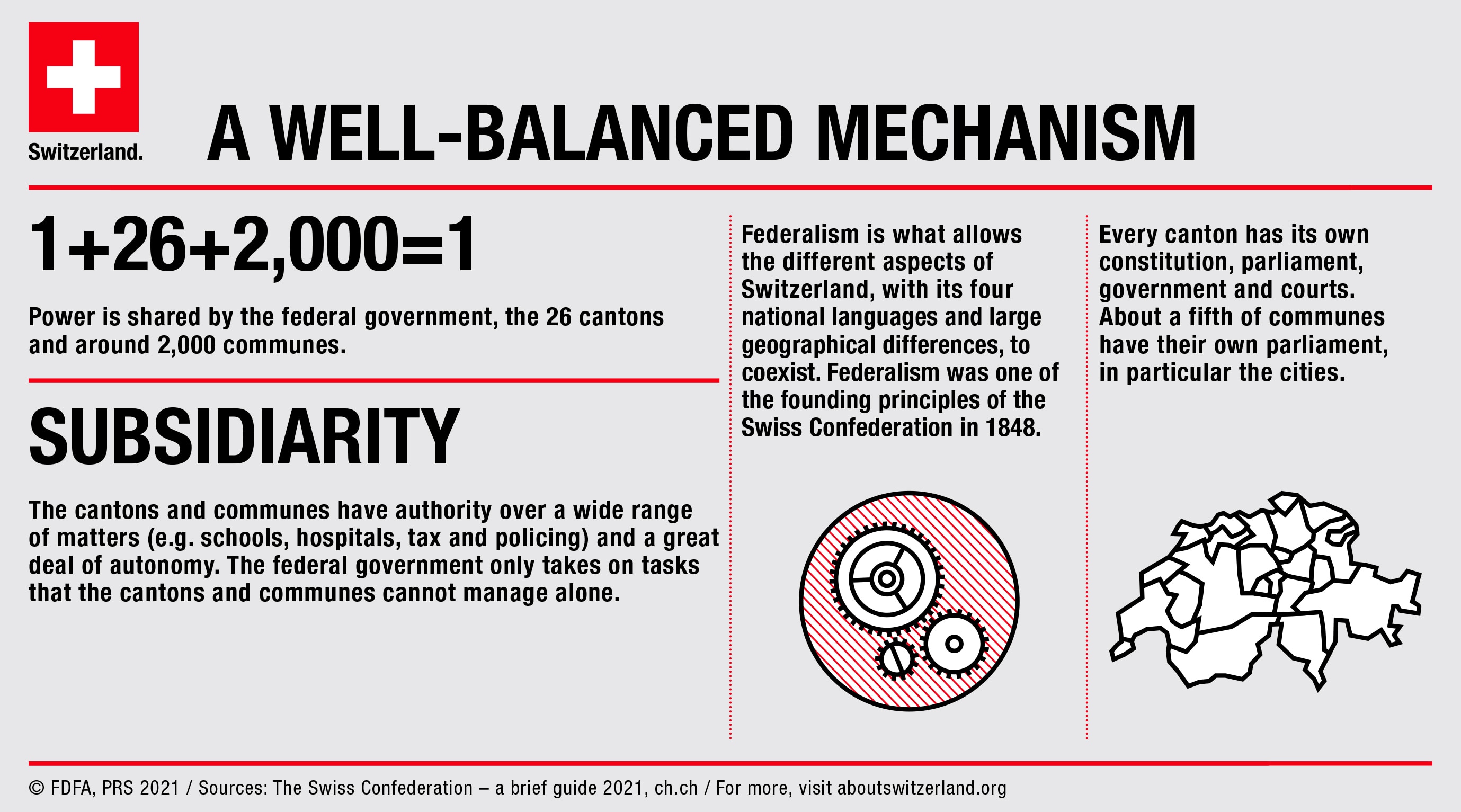Federalism and direct democracy reflect the great importance that the Swiss political system places on the freedom of choice and self-determination. Bern is the de facto capital city of Switzerland, though officially it is referred to only as the 'federal city'.
Political System – Facts and Figures
- Over the centuries, a tangle of different alliances developed into a confederation of states that went on to become the federal state we know today. Switzerland's national borders were fixed and internationally recognised in 1815.
- Its political system is based on the Federal Constitution of 1848. Since then, the Confederation's powers have grown, the rights of its citizens have expanded, and political diversity has increased.
- Switzerland does not have an official (de jure) capital city in the technical sense. Chosen as the seat of government, Bern is referred to as the 'federal city', and operates as the de facto capital.
- Three political levels share power in Switzerland: the Confederation, the 26 cantons and 2,172 communes.
- The Swiss federal government, (the Federal Council), is made up of seven members, who are elected by Parliament and who are each members of one of the strongest parties. The federal councillors work together to reach a consensus and set the course the country will follow. This form of government is known as a consociational democracy.
- The Swiss Parliament (Federal Assembly) has a total of 246 members, who are directly elected by the people. Switzerland has a bicameral parliament consisting of the National Council (200 members) and the Council of States (46 members).
- Eleven parties are represented in the Swiss Parliament. Those parties with the largest share of the popular vote are represented on the Federal Council.
- Some 5.5 million citizens above the age of 18, roughly 63% of the total population, are eligible to vote at federal level.
- Few other countries offer their citizens as many opportunities to vote on political issues as Switzerland does. Every year there are between three and four popular votes in which the electorate can have their say on a particular issue. Delegates are elected every four years.
- In two cantons (Appenzell Innerrhoden and Glarus), cantonal votes and elections are still held by show of hands on a square in the cantonal capital. This form of democratic participation is known as the 'Landsgemeinde', or 'People's Assembly'.

